#historical museum
Explore tagged Tumblr posts
Text
I went to the Nixon and Reagan Presidential Library and Museums today!
I have a migraine from reading in the car so I'm not going to write a lot.
Nixon. I love his signature anime girlie pose :)

WOOF WOOF
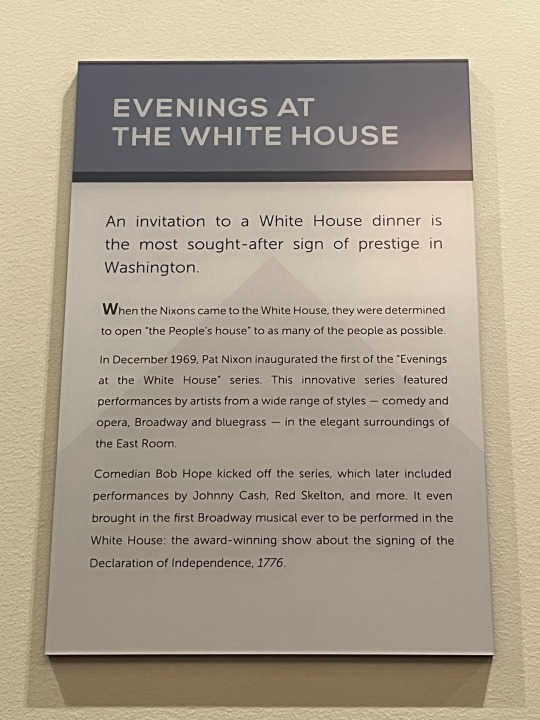
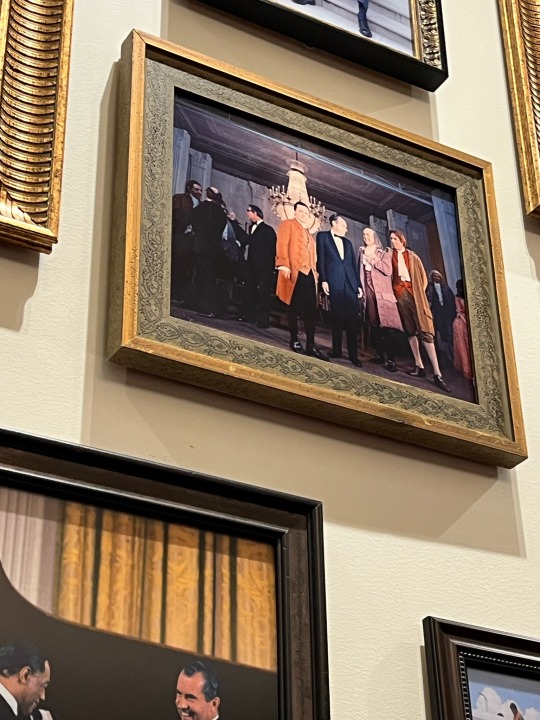
THE JASON HEUSER PAINTING IN THE CORNER

I can now say that I am a Richard Nixon fan, he's just silly. The intro video actually called him a loser since he's always lose before he won 😭
Reagan
NOOOO NOT CUSTER 🤢🤮

It's still so cool that Reagan acted and was even President of the Actor's Guild.
President fandom:

MARX 'S THUMBS-UP IS SO FUNNY. Teach your kids about the wonders of communism RIGHT NOW. 👍
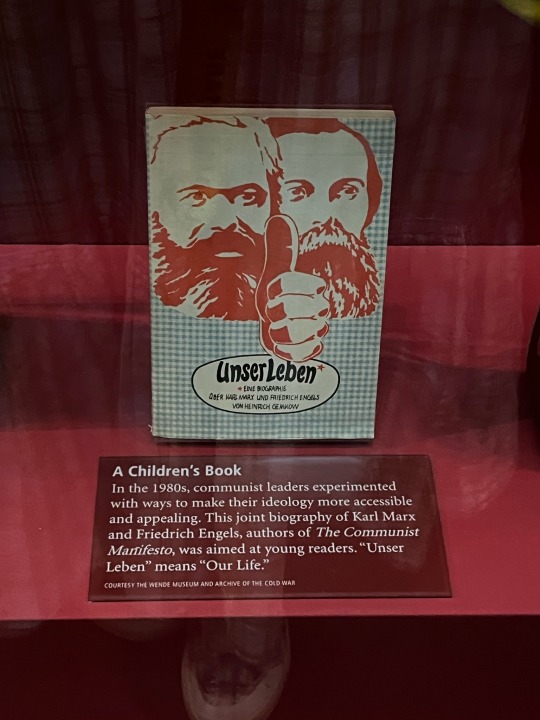
Horse :)

the glare is horrendous...BEAN PORTRAIT
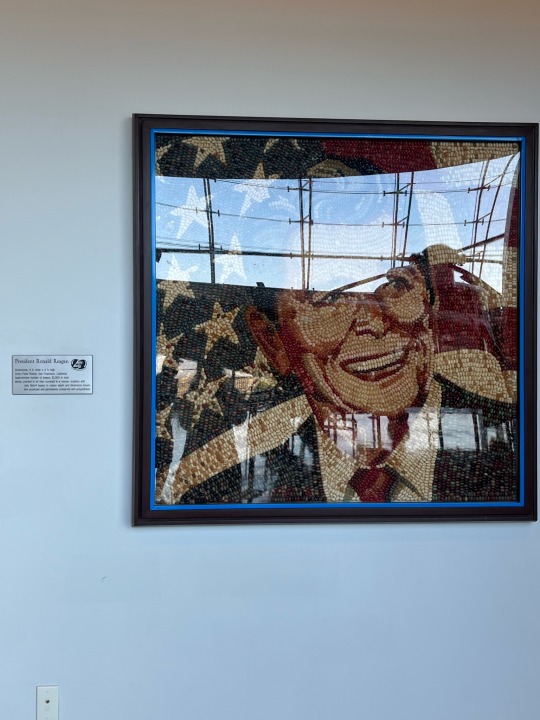
*😐 among us WHOHMP tat tat tat* uh....

#historical museum#us president#us presidents#museum#richard nixon#ronald reagan#presidential library#presidential libraries#1776 musical
22 notes
·
View notes
Text





The House Flipper project of converting the Historical Museum into a restaurant is at "bathrooms are done" stage, so here they be. I ended up making a simple custom changing table because the real ones were either too big or had weird color swatches. Femmes are downstairs, and gentlemanly types are upstairs.
As for the main area(s) and the outside, well uh, this where we at as I post this:



#tirsdenoriginals#tirsdenflipper#house flipper#interior design#historical museum#bathroom#bathrooms#restroom#restrooms
1 note
·
View note
Text


Satan (1835) by Jean-Jacques Feuchère
#art#artist#artblr#artists#sculpture#sculptures#statue#statues#architecture#dark academia#classic academia#aesthetic#dark art#horror#macabre#goth#gothic#gothcore#museum#fine art#historical art#art history#eeriecore#eerie#art community#art blog#art gallery
9K notes
·
View notes
Photo
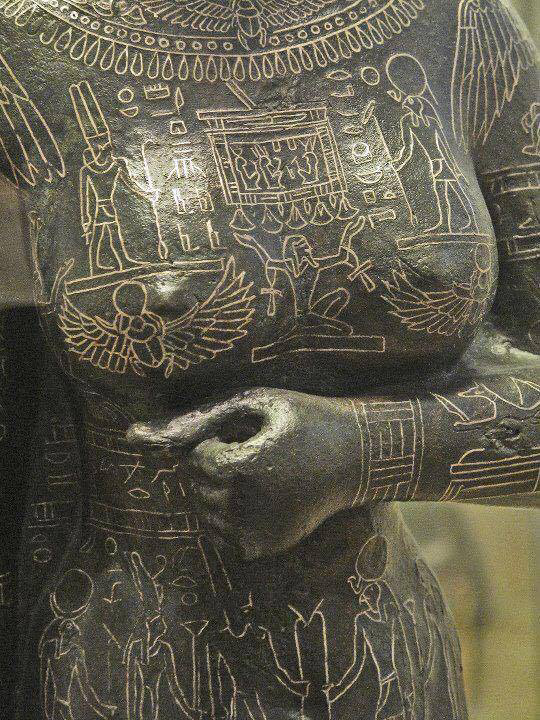
Statue of Princess and Priestess Takushit at the National Archaeological Museum of Athens
5K notes
·
View notes
Text


adam and eve apple. quote translates to “I am your half”
#arqueologia#archaeologylovers#ancientcivilization#museum#art#history#photography#archaeological#antiquities#arte#archaeologylife#archeology#ancient#archaeologist#archaeology#antiquity#artifacts#archeologie#historical#culture#sculpture#artlovers#ancientruins#roman#ologie#mythology#photooftheday#archeotravel#arch#archeologicalsite
6K notes
·
View notes
Text
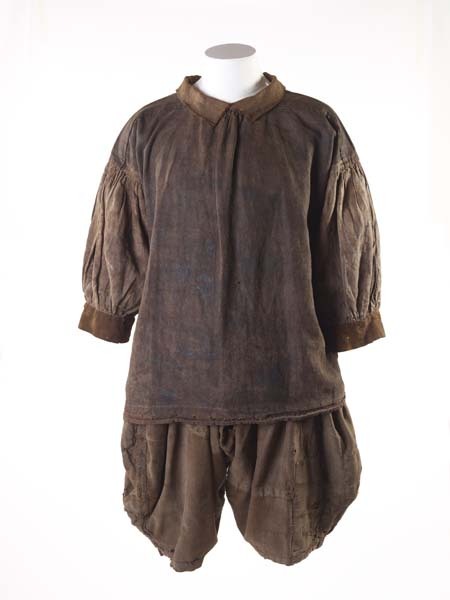

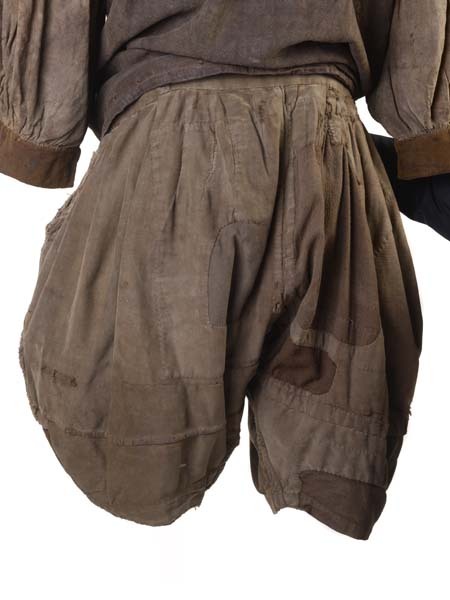
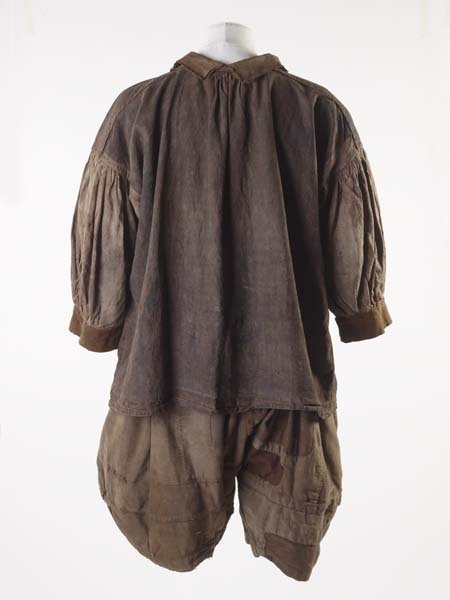
Sailor's Slops
1600s-1700s
Extremely rare survival of a shirt and breeches, called slops, as worn by sailors from the late 16th through to the 18th centuries. This unique set of loose, practical sailor’s clothing reveals life aboard ship. They are made of very strong linen to endure the hard, rough work. There is tar across the front from hauling ropes. The breeches are heavily mended and patched, which the sailor would have done himself.
The Museum of London (ID: 53.101/1b)
#shirt#breeches#menswear#fashion history#historical fashion#17th century#1600s#1610s#1620s#1630s#1640s#1650s#1660s#1670s#1680s#1690s#1700s#linen#brown#museum of london#popular
6K notes
·
View notes
Text




Some belated photos from the "Fashioned by Sargent" exhibit at the MFA Boston. My pictures just don't do it justice! I'm not one for hyperbolics, but it literally took my breath away, even with the crowds of people everywhere.
evening dress by the House of Worth (c.1880); owned by Sarah Choate Sears, who Sargent painted in another dress in 1889
reflection of Ellen Terry as Lady Macbeth (1889); costume designed by Alice Comyns Carr and created by Ada Nettleship
evening dress with matching shoes by the House of Worth (c.1895)
Mrs. Charles E. Inches (Louise Pomeroy) (1887); dress made in 1887 and likely altered 1902. Louise was pregnant at the time of her portrait, and if you look very closely, you can see the dress skirt has adjustable panels to accommodate a changing body.
photos by me (@edwardian-girl-next-door)
#john singer sargent#my photos#fashioned by sargent#mfa#mfa boston#art history#museum#art museum#fashion history#historical fashion#history of fashion#la belle epoque#19th century#19th century fashion#victoriana#victorian#victorian era#victorian fashion#victorian aesthetic#1880s#1880s fashion#1890s#1890s fashion#e
3K notes
·
View notes
Text
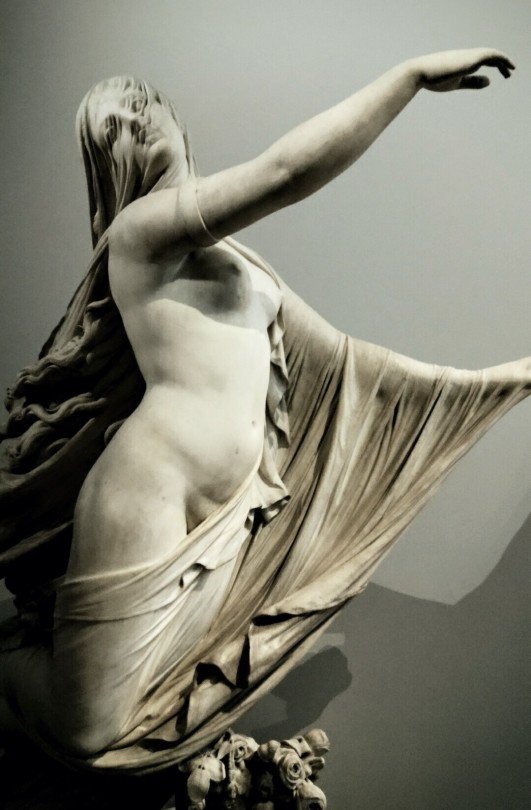
The Sleep of Sorrow and the Dream of Joy by Raffaelle Monti
Victoria & Albert Museum, London, 02 IX 2017
#art#sculpture#classical art#art history#historical art#19th century art#marble sculpture#my photography#victoria and albert museum#v&a#museums#art gallery#art galleries#museum#history#dark academia#dark art#dark aesthetic#dark academism#dark academia art#goth aesthetic#goth art#gothic art#Gothic
5K notes
·
View notes
Text
call me old-fashioned but I think visitors to historical sites have the right to a fully analogue experience of the building if they want it
tech is great for accessibility, and to provide supplemental info for self-guided places. I don't mean an experience without seeing OTHER PEOPLE use their phones, a kiosk, an iPad, etc. that would be unfair to people who needed the accessibility features. just that those things should be opt-in
screens at low angles on stands so they're only visible if you actively walk up to them. iPads, as previously mentioned. audio tours accessible on your phone, but with a request to please only use them with earbuds/headphones. real human staff one can talk to.
NOT screens positioned upright on walls, timed light/sound shows that fill the whole space, etc.
I'm there to see a historical building I can't see anywhere else, in real physical space. not to look at a screen or a projection unless I make that choice, to answer a specific question or similar. and I should be able to have that experience of the site if I want to
#museums#historical sites#it's distracting and I hate it#plus having worked at a site with at least one wall-screen I've seen people get sucked into it#and not actually LOOK at the UNIQUE AND AMAZINGLY PRESERVED BUILDING they are PHYSICALLY IN#museum work#museum worker
2K notes
·
View notes
Text
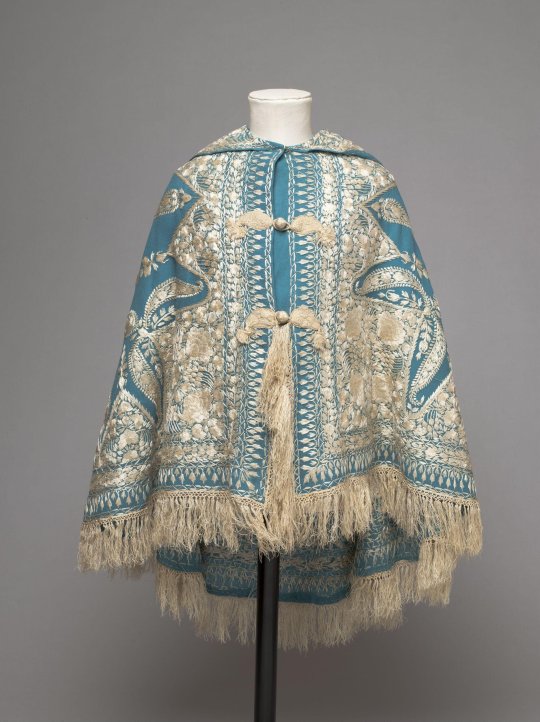

Child’s cape. Twilled peacock blue woollen cloth, embroidered in cream silk thread, with a cream tassel on the hood; Anglo-Indian, 1860-70
#historical fashion#child fashion#turquoise#ijekiel vibes#victoria & albert museum#19th century#wizardcore
16K notes
·
View notes
Text

#roslyn museum#museum#museums#history#historical society#northern exposure#roslyn#roslyn wa#wa#roslyn washington#washington#washington state#historical societies#roslyn historical society#roslyn history#roslyn's cafe#roslyn cafe#cafe roslyn#roslyn historical museum#historical museum#pacific northwest
0 notes
Text







The caretaker's suite for the "Historical Museum" property redo in House Flipper is done, and since the rest of the mammoth project is gonna take a while, I figured I'd post this now. The suite is in the tiny basement and the rest of the building is going to be a restaurant. Since all the basic seller's needs are met by this space, I can literally do whatever I want elsewhere.
The entryway stairs are done as well, although I'll probably change the little lip of flooring that's on the same level as the main floor (which has white brick walls showing slightly below). That area out there is gonna be one of possibly two kitchens, as I'm thinking the main floor might have one style of dining and the upper floor might be something fancier. We shall see.


#tirsdenoriginals#tirsdenflipper#house flipper#interior design#historical museum#finished basement#have pastels will travel
0 notes
Text


Fire Dance (1889) by Joseph Tomanek † Le Villi (1906) by Giuliano Bartolomeo
#art#artist#artblr#painting#artists#art community#oil on canvas#oil painting#art gallery#classical art#fine art#historical painting#historical art#art blog#goth#strong female character#strong female characters#classic academia#museum#museumcore
10K notes
·
View notes
Text















Foundling token PNGs.
"‘Foundling’ is an historic term applied to children, usually babies, who have been abandoned by parents then discovered and cared for by others. (...) Between the 1740s and 1760s, mothers leaving their babies at the Foundling Hospital would also leave a small object as a means of identification. The hope was that they would one day be able to reclaim their child." — (Foundling Museum)
(1. Crystals, 2. Hazelnut, 3. Halved inscribed medallion, 4. Child's ring, 5. Mother of Pearl pineapple, 6. Key, 7. Thimble, 8. Paper and textile heart, 9. Mother of Pearl inscribed heart, 10. Enamel disc, 11. "Innocence in Safety" inscribed coin, 12. Fish-shaped gambling token, 13. Wooden pot with rouge, 14. Inscribed padlock, 15. "You have my Heart, Tho we must Part" inscribed heart disc.)
#pngs#transparent#transparents#moodboard#artboard#imageboard#collage#collages#mixed media#foundling tokens#1700s#foundling museum#historical#stickers
2K notes
·
View notes
Text
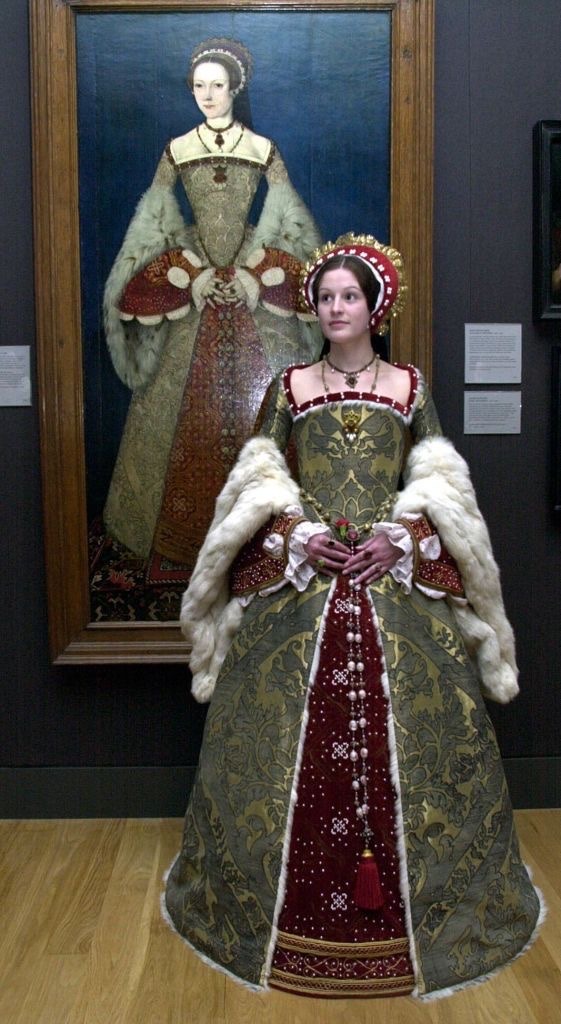
Annika Caswell a student from the Wimbledon School of Art wardrobe department, dressed as Catherine Parr, next to her portrait attributed to Master John, c. 1545 in the National Portrait Gallery, London. * The students are recreating portraits dating from the Tudor period to the 19th century which have been inspiration for their lavish costumes . (Photo by Rebecca Naden - PA Images/PA Images via Getty Images)
#art#artwork#fashion#historical#historical fashion#historical clothing#historical dress#history#long dress#museum#art school#the tudors#tudor history#tudor era#elizabeth tudor#fashion dress#dresses#dress#Catherine Parr#henry viii#1400s#1500s#england#high fashion#historical costuming#painting#dress up#red#green#beautiful
6K notes
·
View notes
Text


Evening Dress
c.1900-1907
United States
New Canaan Museum & Historical Society
#evening dress#fashion history#historical fashion#turn of the century#1900s#1900#1905#1907#black#white#velvet#silk#floral#united states#new canaan museum and historical society
2K notes
·
View notes